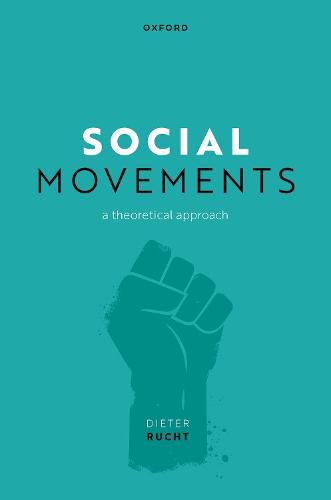Readings Newsletter
Become a Readings Member to make your shopping experience even easier.
Sign in or sign up for free!
You’re not far away from qualifying for FREE standard shipping within Australia
You’ve qualified for FREE standard shipping within Australia
The cart is loading…






In Social Movements: A Theoretical Approach, Dieter Rucht offers a theoretically and historically informed approach to social movements as a phenomenon of modern societies. He links the analysis of social movements to general theories of society and processes of social change, and combines three basic perspectives: interactionist, constructivist, and process-oriented (ICP-approach).Drawing mainly on ideas from Juergen Habermas, Pierre Bourdieu, and Anthony Giddens, Rucht recommends several revisions and highlights the important role of the public sphere as the central stage for social movements. He argues that it is a realm in its own right and the major domain in which social movements make themselves seen and heard, garner support, and possibly succeed in changing basic societal structures. This comprehensive treatise analyzes the external and internal activities of social movements, the role of different kinds of opportunities and restrictions, collective identities and framing, organizing, networking, and strategizing. It lucidly examines the complexity of social movements that have a status as both actors and systems, and whose logic cannot be reduced to either strategic or communicative action.
$9.00 standard shipping within Australia
FREE standard shipping within Australia for orders over $100.00
Express & International shipping calculated at checkout
In Social Movements: A Theoretical Approach, Dieter Rucht offers a theoretically and historically informed approach to social movements as a phenomenon of modern societies. He links the analysis of social movements to general theories of society and processes of social change, and combines three basic perspectives: interactionist, constructivist, and process-oriented (ICP-approach).Drawing mainly on ideas from Juergen Habermas, Pierre Bourdieu, and Anthony Giddens, Rucht recommends several revisions and highlights the important role of the public sphere as the central stage for social movements. He argues that it is a realm in its own right and the major domain in which social movements make themselves seen and heard, garner support, and possibly succeed in changing basic societal structures. This comprehensive treatise analyzes the external and internal activities of social movements, the role of different kinds of opportunities and restrictions, collective identities and framing, organizing, networking, and strategizing. It lucidly examines the complexity of social movements that have a status as both actors and systems, and whose logic cannot be reduced to either strategic or communicative action.